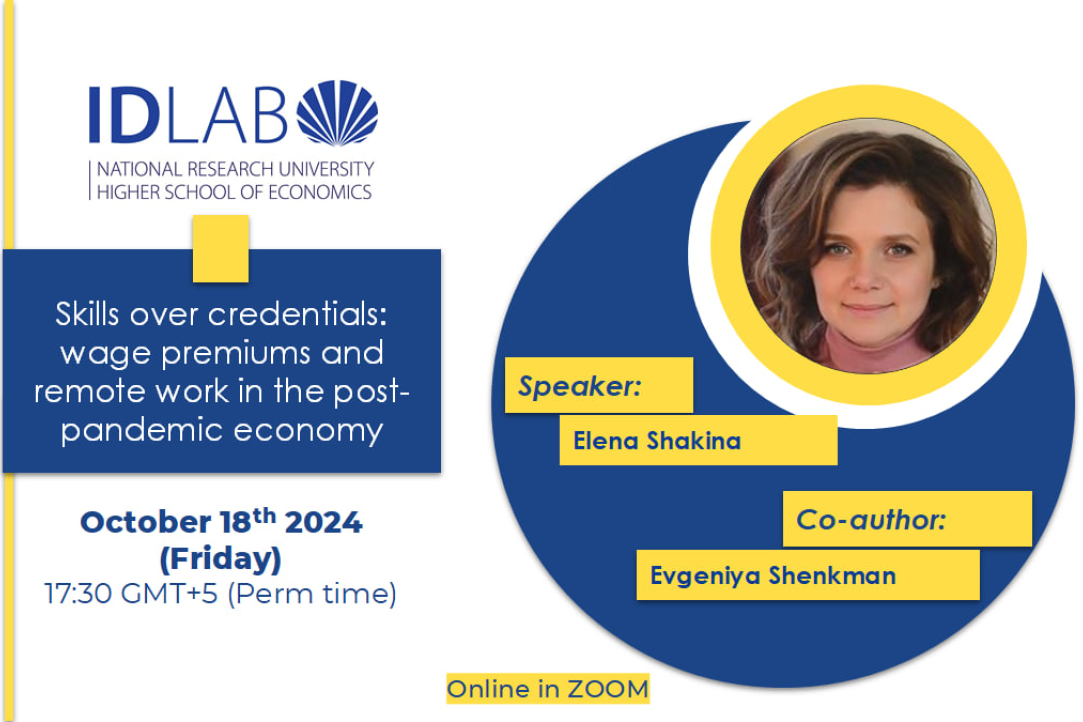Skills over credentials: wage premiums and remote work in the post-pandemic economy
On October 18, 2024, the International Laboratory of Intangible-driven Economy held a research workshop, where Elena Shakina, senior researcher of the laboratory, and her co-author, junior researcher Evgeniya Shenkman, presented the report "Skills over credentials: wage premiums and remote work in the post-pandemic economy".

In their presentation, the researchers discussed the shift in the modern labor economy, where traditional criteria for selecting professionals, such as credentials and professional titles, are being replaced by specific skills and competencies. This trend was amplified during the COVID-19 pandemic when businesses were forced to transition to remote work. The change in work format led to a demand for new qualities: digital literacy, adaptability, and the ability to work effectively independently. The report paid special attention to the information technology sector, where proficiency in programming, cloud computing, and data analysis has become crucial factors for employment.
The study was based on data collected during the pandemic and tested the hypothesis regarding the increasing importance of technical skills in the labor market. A key metric used in the research was salary premiums for specific skills. These premiums essentially reflect how highly employers value employee competencies. The study showed that from 2015 to 2022, the aforementioned skills became more sought after, and companies demonstrated a willingness to pay more for these competencies than for credentials and experience.
The presentation was followed by a lively discussion, during which the workshop participants offered many valuable ideas for further development of the research. The workshop participants found the selection of “top” skills and the non-trivial research methodology interesting.
The workshop brought together about 25 participants from different universities and countries, including IDlab staff and invited professors such as Dennis Coates from the University of Maryland and Angel Barajas from the University of Vigo.
